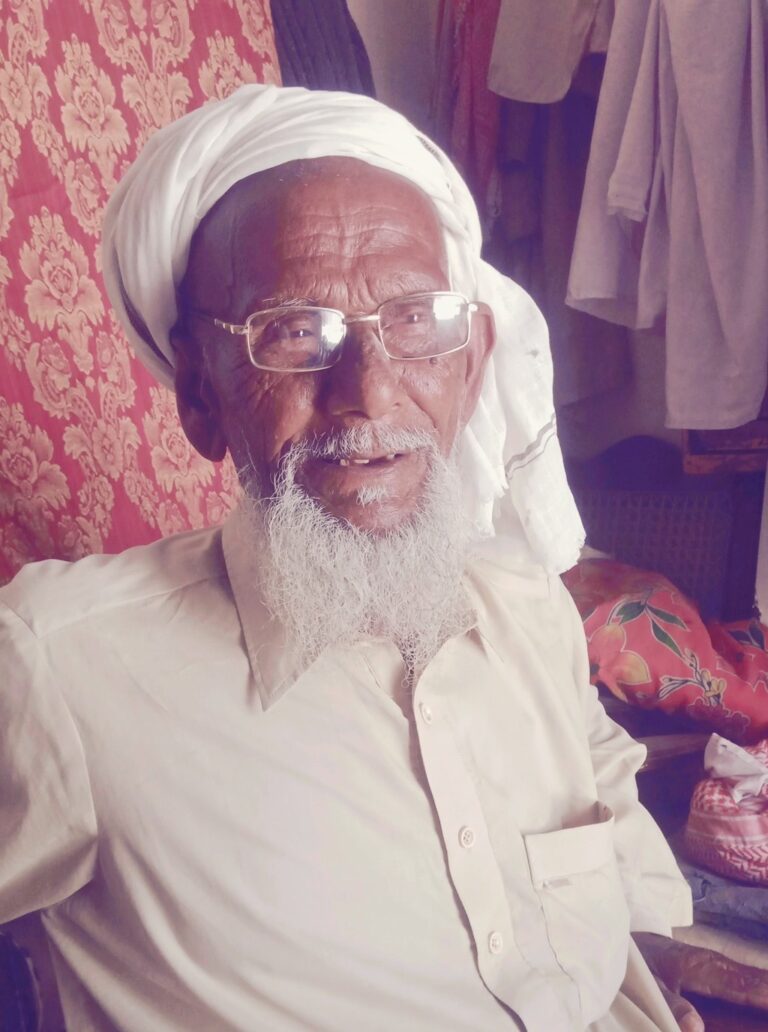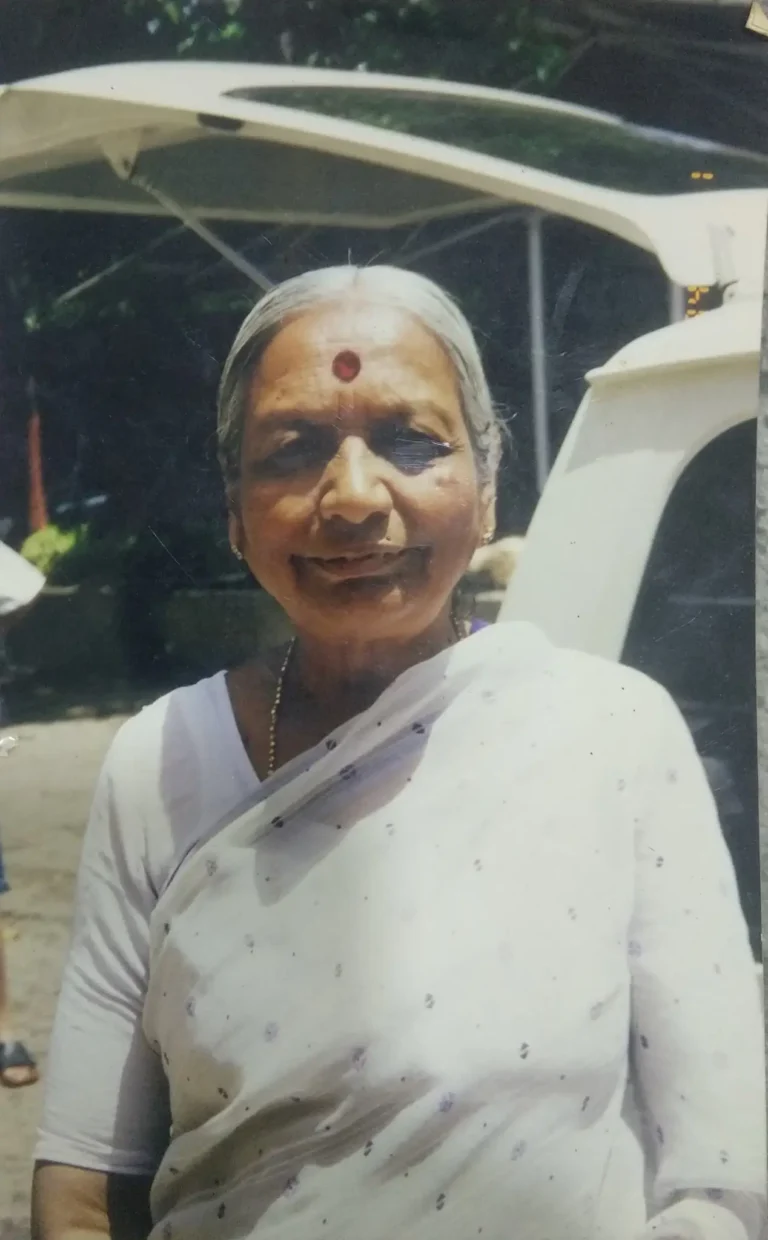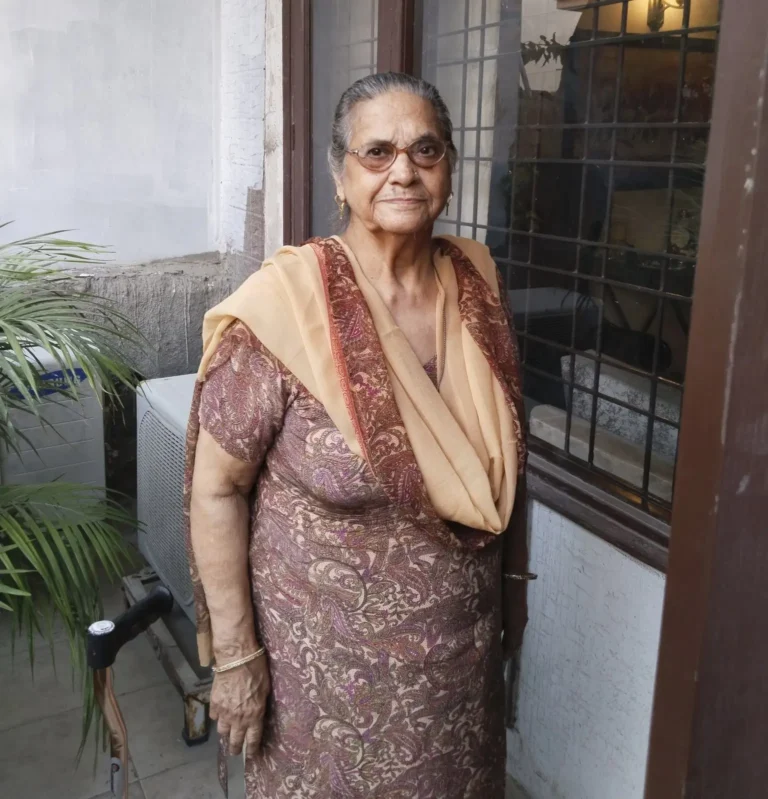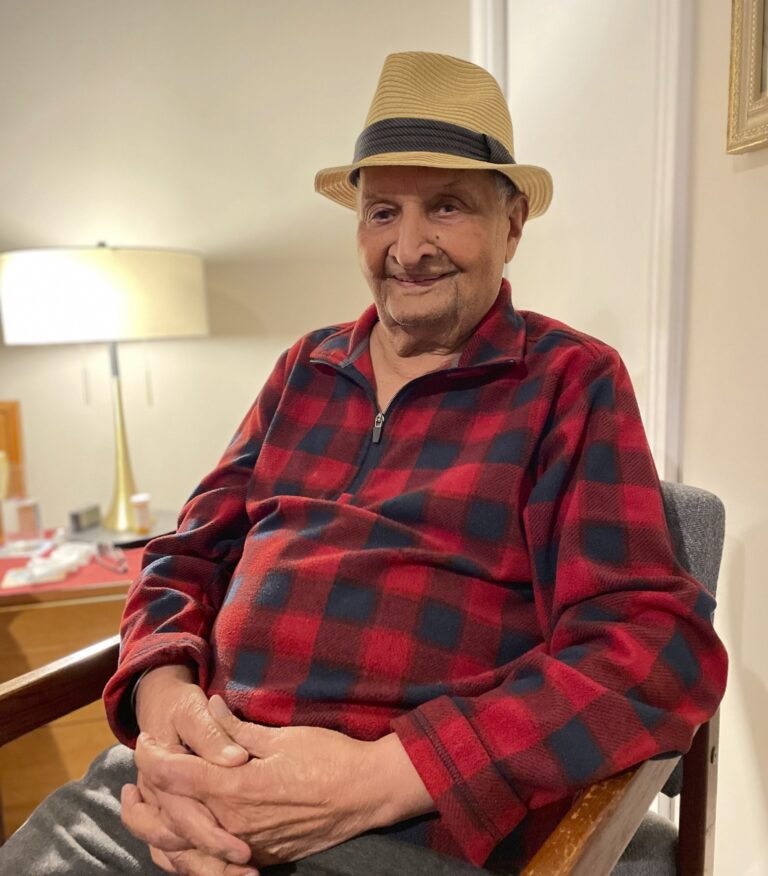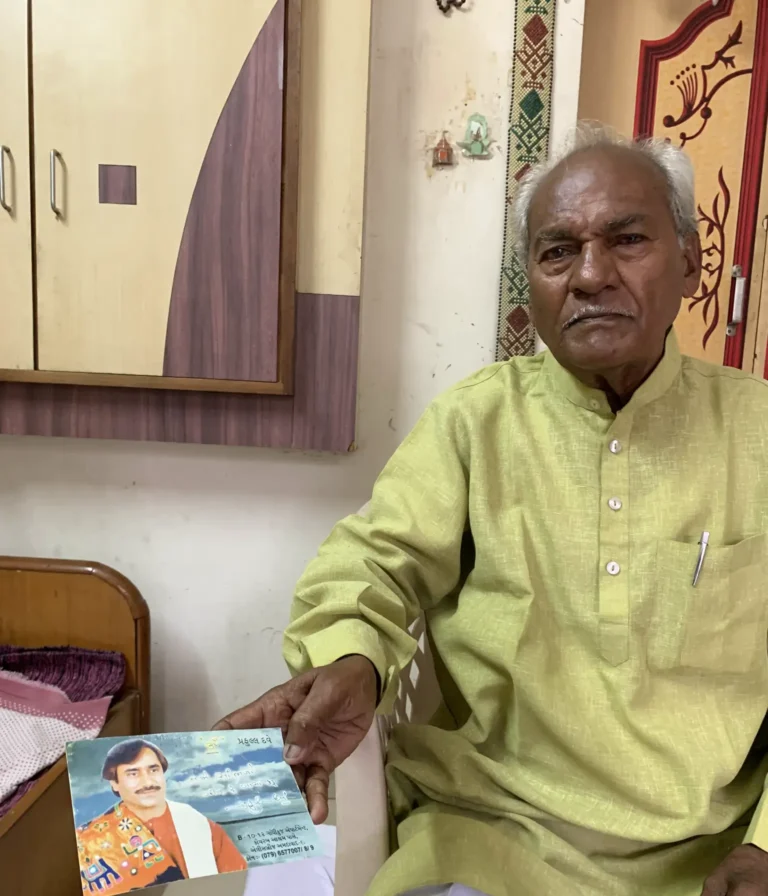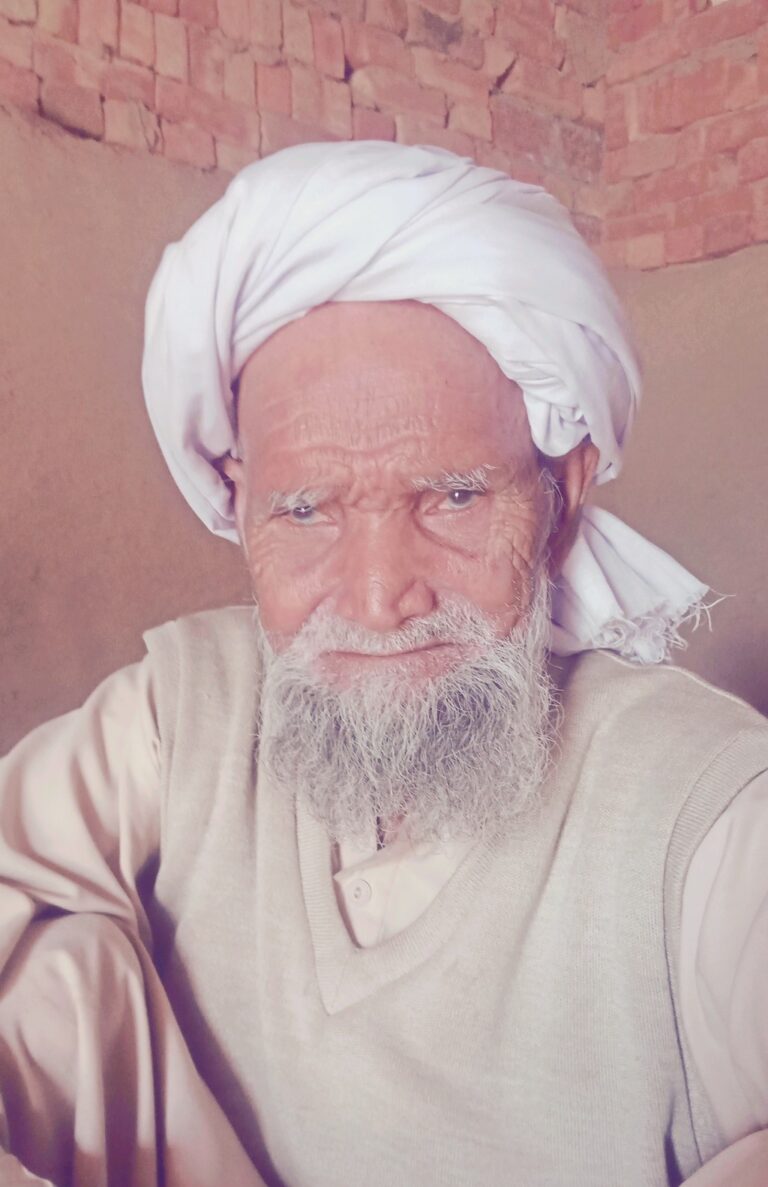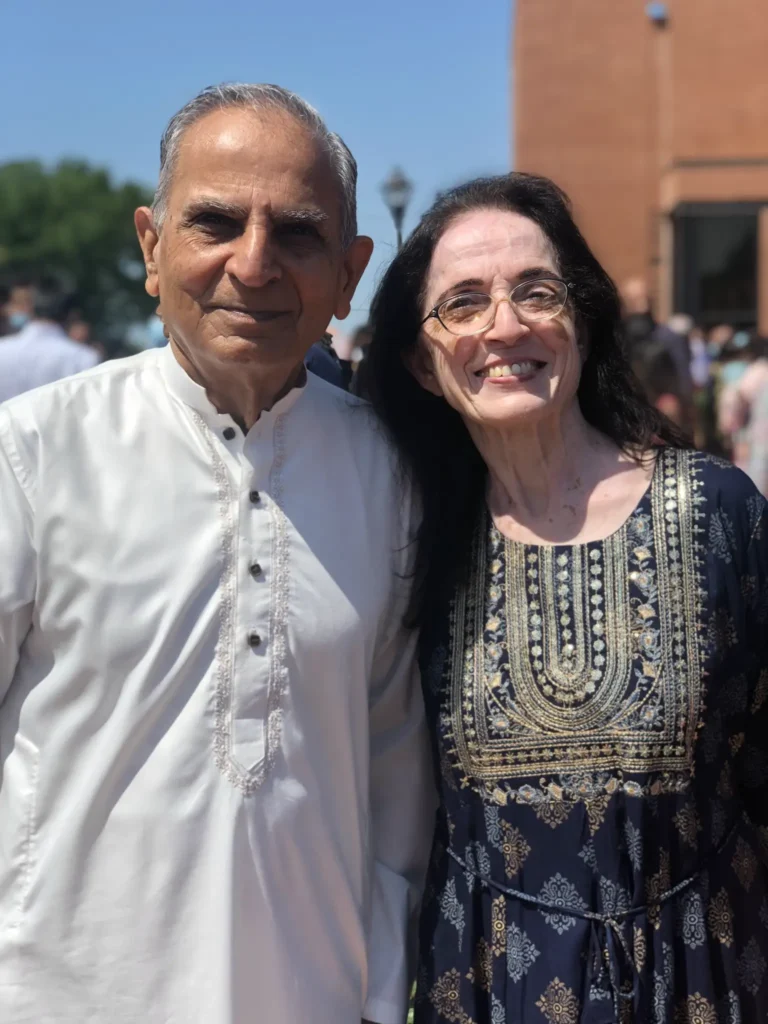Amir Narsi was born in Rajkot, Gujarat, India, on March 19, 1943 (pre-Partition) to a Shia Ismaili family, a religion he still practices today.
Oral Historian: Sofia Aziz
Camera Person: Sofia Aziz
Summary:
Amir Narsi was born in Rajkot, Gujarat, India, on March 19, 1943 (pre-Partition) to a Shia Ismaili family, a religion he still practices today. Because Mr. Narsi was only 4 years old when Partition happened, much of what he knows about his family’s migration is from stories his older family members have told him.
His father was a prominent member of the independence movement during the British Raj and worked closely with Mahatma Gandhi. Because of his father’s role as an influential Muslim at the time of Partition, Mr. Narsi and his family fled to Bombay, India (now known as Mumbai), to escape persecution. Shortly after, Mr. Narsi’s father and eldest brother had to flee to Karachi, Pakistan. Mr. Narsi, his mother, and his remaining siblings remained in Bombay for some time before migrating to Pakistan. Mr. Narsi explained that the journey to Karachi shortly after the Partition was too dangerous for Mr. Narsi and his siblings, who were all very young at the time, so they remained in Bombay with their mother until the journey was safer. Mr. Narsi recalls his father describing the conditions of the train ride to Karachi from Bombay, with carriages overflowing with people, many riding on top of the cars, which led to many people falling off the train and either dying or sustaining severe injuries.
Looking back on Partition today, Mr. Narsi says the aftermath of the Partition should have been handled differently concerning inflammatory speeches made by both Indian and Pakistani politicians that continue today; they have created separations between Indians and Pakistanis and between Hindus and Muslims. He thinks much of the violence that began during Partition that continues today could have been avoided if politicians had preached unity instead of separation. Whenever India or Pakistan’s Independence Day comes around, he never feels particularly happy since the dates mark a time of immense grief and conflict.
Mr. Narsi describes his childhood in Karachi as starkly different from his time in India. He describes how his family found adjusting to a new set of customs difficult, particularly learning Urdu since they had previously only spoken Gujarati. Mr. Narsi says it was easier for him to learn Urdu since he was very young then. Though Mr. Narsi and his family were Shia Ismaili Muslims, a religious minority in Pakistan, he recalls never feeling afraid to practice his faith. His family was surrounded by others of the same religious background, so he never felt marginalized due to religion. Additionally, his family lost virtually all financial assets during their migration from India and could only afford to live in one of Karachi’s slums. He recounts not having more than two pairs of clothes for most of his childhood.
However, Mr. Narsi got an education and continued on to university in London to study accounting, which he says was his father’s dream for him. Mr. Narsi moved to London from Karachi in the early 1970s after marrying his wife, Izzat, and after the birth of his first child, Laila. While living in London, Mr. Narsi’s father passed away and he regrets not being in Pakistan during his father’s last days. Mr. Narsi experienced racial and religious discrimination in London, especially concerning finding employment and housing. Living in London while raising a child eventually became economically infeasible, but Mr. Narsi received a job offer that would relocate him to either Port Said, Egypt, or Canada. However, both locations would be difficult for him and his family to move to, and since his wife already had a brother living in the United States, Mr. Narsi turned down the job offer.
Mr. Narsi and his family migrated to Chicago, Illinois, undocumented in the late 1970s. Living undocumented in the United States proved to be extremely difficult, and Mr. Narsi and his family lived in fear of being caught without papers and being arrested or deported to Pakistan. It was also incredibly difficult for Mr. Narsi and his wife to find employment, and Mr. Narsi had to take a job in Kotzebue, Alaska, while his daughter and wife remained in Chicago; this was incredibly difficult as Mr. Narsi had to work in extremely cold and harsh conditions while having very little community support, and could only visit his family once a month.
Today, Mr. Narsi lives in Sugar Land, Texas with his wife and near his two daughters and four grandchildren. Currently, he owns an auto parts store where he enjoys interacting with his coworkers and customers. He feels very fortunate to have ended up where he is and says that he couldn’t be happier with how his life turned out, but he will never forget the lasting traumas inflicted by Partition.

